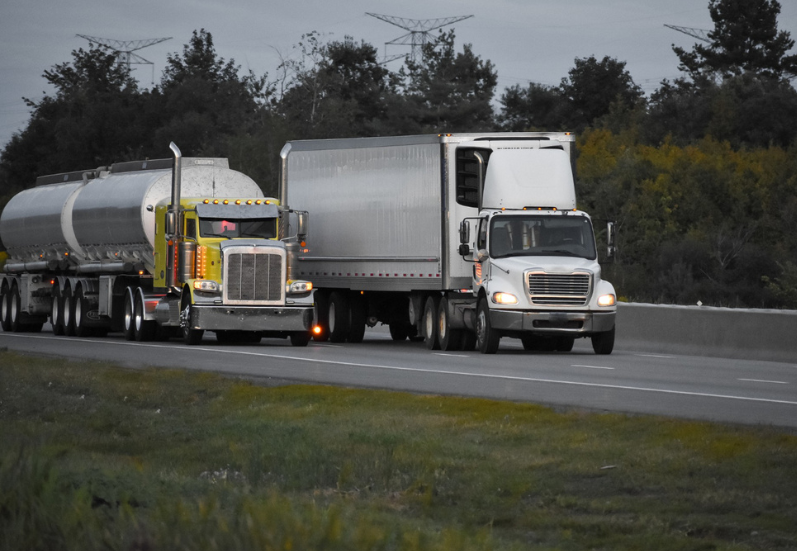
Insurance coverage is indispensable to every personal injury claim. However, dealing with insurance adjusters can be daunting and tiring. The complications are even more pronounced with truck mishap issues.
“Since California runs a tort system, you must be ready to prove the other party’s fault to receive compensation. Insurers or even the courts will not award you damages if you cannot establish that someone else is responsible for your injuries,” says truck accident attorney Ryan Block from Block LLP Injury Law Firm.
Thus, it is crucial to understand California’s at-fault system and the roles of insurance firms in truck accident cases to receive deserving compensation.
California Is An At-Fault Insurance State
States in the US practice no-fault or at-fault insurance systems. California is one of the many states that operate the latter, which is also known as the “tort system.”
This system holds the at-fault driver in a collision liable for damages and injuries. In a no-fault system, each party’s insurer covers their costs regardless of who caused the accident. In California, the at-fault party accounts for expenses from the accident.
As observed earlier, the claimant must identify the trucker and prove fault to recover compensation.
How To Establish Fault In California Truck Accident

California law establishes fault through negligence and statutory violations. For a successful case, you must understand the principles guiding both.
We will shed light on the two shortly:
Determining Fault Through Negligence
The claimant must prove fault through four elements to establish fault under the negligence theory.
First, you must establish that the negligent driver had a duty of care toward you. Federal and state authorities expect every motorist to operate their vehicle reasonably, ensure awareness of road conditions, and adhere to traffic laws.
However, a breach of these duties, such as speeding or driving under the influence, constitutes negligence. Driving under the influence, speeding in a construction zone, and running a red light are examples of breaches.
Then, you must prove that the breach of the duty of care caused your accident. For instance, the trucker failed to heed a stop light, colliding with your car.
Finally, you must establish that you suffered damages due to the accident. Your injuries and property damage must directly relate to the incident to stand a chance of recouping damages.
While these four elements seem straightforward, proving them without an accident attorney can be a difficult task. Some vital elements of personal injury law must be reflected in them for them to be acceptable.
Determining Fault Through Statutory Negligence
To establish fault via statutory negligence, you must prove that the trucker breached the California Vehicle Code or other known statute. A police officer will create an accident report at the accident scene.
The report will capture essential details crucial to establishing fault. For instance, it will indicate if the driver breaches any law, such as running a red light, driving under the influence, or speeding. If you can prove that the trucker violates any law, they become liable for your injuries and losses.
You May Deal With Multiple Insurance Carriers
Victims often face multiple insurance carriers. Typically, you will deal with the driver’s insurer. Other possible defendants include the trucker’s employer, the truck owner if different from the employer, and other plausible defendants.
While an insurance policy will typically cover the trucker and their employer, other identified defendants will have their insurers. Thus, you should be ready to deal with several insurance adjusters from different companies.
Insurance Adjusters May Come Knocking Sooner Than Expected
Insurance adjusters promptly contact accident victims and their families after a crash. One of the first things they do is to discourage victims from engaging an attorney. They will trick victims into dealing with them directly.
Do not allow such sweet talks to sway you from doing the right thing. The adjuster is representing the interests of the company. They want to protect their employer’s business. Hence, they are less concerned about you receiving deserving compensation.
Engaging an accident attorney will help you have a professional who cares about you by your side. They will prioritize your interests in the negotiations. They also know the typical tactics insurance adjusters use to reduce claimants’ compensation.
It Is Time For Negotiations
After engaging a lawyer, your counsel will inform the insurer about the representation. You can step back and let your lawyer deal directly with the insurance company. Your attorney will send a demand for payment to the insurance company after ascertaining your damages and long-term prognosis for recovery.
The demand will capture your settlement amount, reasons for requesting the amount, and evidence. The firm and your lawyer will now begin negotiations. Your case ends after settling. However, if it hits a rock, it will proceed to litigation.
The negotiations can continue even after filing a lawsuit. However, once you have sued the firm, the negotiations will now be between your lawyer and the insurance company’s legal representatives. The adjuster can no longer come to the negotiation table.
However, the final decision concerning the issue will still come through the assigned adjuster but will be communicated to your lawyer via the defense attorney. If there is any need to attend a settlement conference during the litigation, all parties, including the adjuster, will be present.
Over 95 percent of cases end through settlement. So, your case is likely to end through this route. However, the case will proceed to court if you cannot agree on the fundamentals.
The potency of your evidence will determine the success of your litigation. You may need to do extra work beyond the settlement stage to litigate convincingly.
Engage A Local Attorney
As observed earlier, it is risky to heed the persuasions of insurance adjusters against engaging an attorney. The presence of a truck accident lawyer brightens your chances. They will handle your case professionally and go the extra mile.
Also, California’s pure comparative negligence law allows you to recover compensation from a defendant even if you are 99 percent responsible for the crash. Your damages will be reduced based on your level of fault. For instance, if you are 60 percent guilty, you will only receive 40 percent compensation.
A California accident attorney knows how to properly interpret the law on your behalf. They will trigger all necessary elements for a favorable outcome.
Read Also:
- What is the Average Settlement for a Car Accident for Back and Neck Injury?
- 5 Common Mistakes People Make When Filing a Car Accident Claim
- How to Handle a Dog Bite Accident: A Step-By-Step Legal Guide











0 Reply
No comments yet.